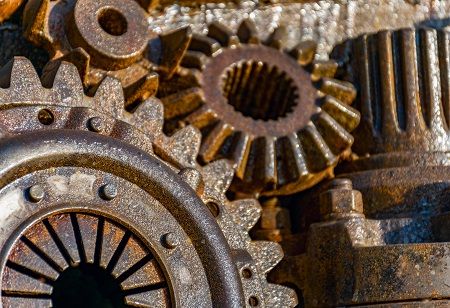
Govt Eyes Rs 16k Cr Boost for Construction Equipment Sector
- Govt plans ₹14,000–16,000 crore scheme to boost local production of heavy construction equipment
- Aims to cut imports, strengthen supply chains, and support mega infrastructure projects
- Could raise indigenisation to 70–80%, creating a $25B market and saving $3B annually
The Centre is prepping a large incentive programme to encourage domestic manufacturing of heavy construction equipment like TBMs (tunnel boring machines), cranes and other special rigs with funding of approximately ₹14,000–16,000 crore. The initiative aims to help reduce India's reliance on imports and accelerate the country's huge infrastructure development.
Inter-ministerial discussions are under way, and it's expected to launch in the next financial year. At present, around half of the components in India's capital equipment sector for construction and mining are imported, mainly from China, Japan, South Korea and Germany.
According to contacts from within the industry, it is vital to establish domestic manufacturing of these components, as India undertakes mega projects such as bullet trains, expanding metro rail, highway construction and new ports; they are also of the opinion that delays on mega projects are mainly due to bottlenecks in the global supply chains and also their dependence on overseas demand for exports.
Also Read: Japan, India Forge Next-Gen Business Ties Amid Global Uncertainty
Rahul Agarwal, CEO of Patel Engineering stressed that a heavy reliance on imports, especially for high-end equipment like TBMs and cranes, is problematic when there are any disruptions to the international supply chain. He said EPCs often have to turn over fleets from project to project, deepen relationships with vendors, and include risk-sharing in contracts to offset risk.
In a similar vein, Manish Mathur, CEO (Cranes) of ACE, noted that the sector only grew by a modest 3% in FY25, and even domestic sales fell in the first quarter of FY25. He underscored that it is imperative to have a policy that incentivises local manufacturing to build resilience across the ecosystem.
An ICRA report recently forecasted that indigenisation levels in the sector might rise from less than 50% today to 70-80% in the next five to seven years, unlocking a $25 billion market while saving $3 billion in foreign exchange from imports per year.
Although there are existing 'Make in India' procurement guidelines, local suppliers still have challenges in making highly-specialised equipment. The proposed scheme could address those gaps and strengthen India's long-term infrastructure goals.

.jpg)